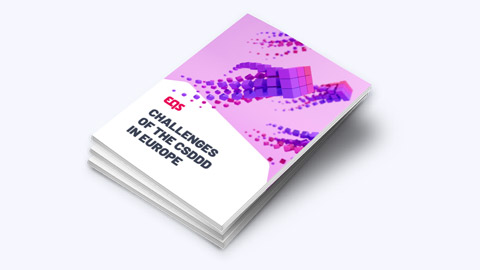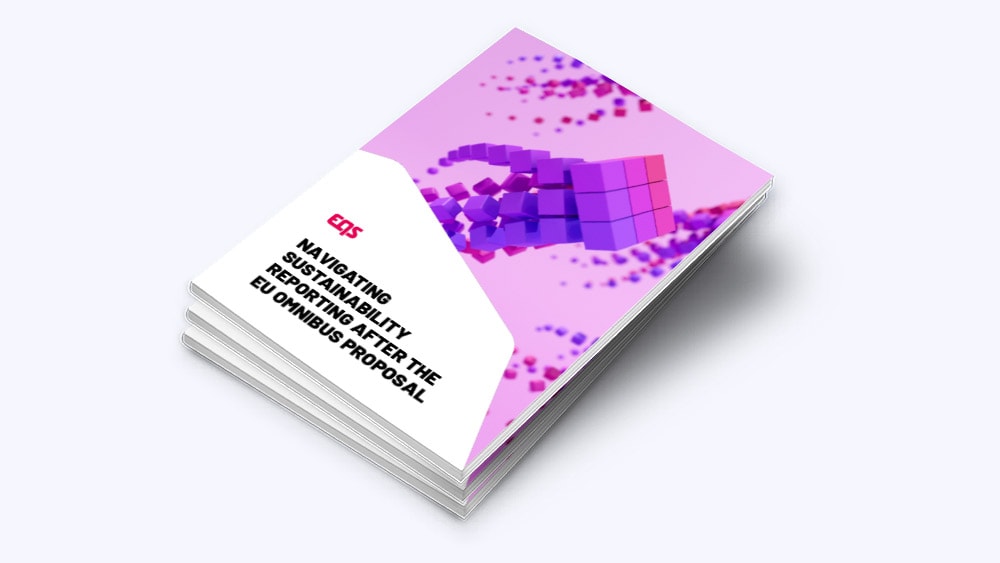Speed up your Internal Investigations
AI and automation tools are transforming internal investigations by reducing complexity, saving time, and ensuring compliance with both internal and external regulations.

Since the Whistleblower Protection Act came into force, there has been a notable rise in the frequency of internal investigations. With the need to navigate both internal policies and external regulations, these investigations can become complex and time-consuming. Fortunately, recent advancements in AI and automation are transforming the process, making it more efficient and less burdensome. In this article, we’ll delve into how these innovative technologies can streamline investigations, freeing up compliance department time for more strategic and high-value activities.
Challenges in Internal investigations
Handling reports is undeniably time-consuming and complex. A brief report typically requires extensive follow-up to gather additional information and identify the individuals involved. In large, global organizations with diverse workforces, reports are frequently submitted in multiple languages, necessitating precise translations. Lengthy reports with numerous attachments add another layer of complexity, as case handlers must sift through extensive details to pinpoint the most critical information. This process can be overwhelming, making it difficult to prioritize and address the most urgent issues efficiently.
As the volume of reports grows, the challenge of managing diverse subject matter becomes even more pronounced. Manual categorization to identify trends and prepare end-of-year summaries is both error-prone and labor-intensive. This complexity is compounded during the interview phase, where interviews can take weeks to complete.
Additionally, maintaining confidentiality while ensuring accessibility presents its own set of challenges. Whistleblowers often fear retaliation, so creating a safe environment where misconduct can be reported without fear is crucial. Implementing effective confidentiality protocols and communication strategies is essential but can be particularly difficult in smaller organizations where anonymity is harder to ensure. Compliance with GDPR also adds another layer of complexity, especially regarding the collection and handling of personal data.
How Automation and AI Can Help
Automation and AI features such as those built into EQS Integrity Line present significant opportunities to streamline investigations, save time, and communicate effectively with whistleblowers. They help foster a reporting culture that is both accessible and secure, maintaining confidentiality—and even anonymity—while ensuring that sufficient information is available for effective investigation.
Automatic Report Summary
This AI tool efficiently processes lengthy reports and provides case handlers with a concise overview of the subject matter. This allows them to grasp the essentials without needing to dive into the detailed content right away.
Automatic Categorization
AI can also automatically assign reports to specific categories, which is invaluable for identifying trends and preparing end-of-year reports. For example, if there is a rise in complaints related to financial mismanagement, the tool quickly highlights this trend, enabling these investigations to be prioritized. This tool also streamlines end-of-year reporting to the board.
Machine Translation of Reports
AI-driven translation tools provide automatic translations of reports in any language spoken by employees across the company. This capability ensures that problems in different geographic locations can be identified without needing separate reporting centers in each area. It also facilitates effective two-way communication through the quick translation of responses back to whistleblowers.
Automatic Transcription of Sound Files
If employees are unfamiliar with computers or have a lower literacy level, they might prefer to report concerns in spoken language rather than written text. This can be time-consuming to transcribe manually. AI tools can automatically transcribe audio files and can generate audio responses from case handlers’ written replies, facilitating two-way communication.
Anonymization of Reports
Whistleblower reports often contain personal data about other employees. AI tools can identify and anonymize this data, ensuring compliance with data storage regulations such as those detailed in the GDPR, which require the removal of personal data after two years.
Upcoming features:
Individual identification
Sometimes, reports reference individuals with insufficient identifying information. EQS is currently working on an AI tool which links details from whistleblower reports to actual employees in the company, providing case handlers with a clearer overview and saving significant time on manual research.
Automated Linking of Similar Cases
EQS is also looking into a new AI feature which will be able to analyze report information, recognize similarities, and automatically link related cases. This will help identify patterns and streamline the investigative process.
Investigation Interviews Conducted by an Avatar
Looking even further ahead, there is potential for AI-powered avatars to conduct investigative interviews with less-critical witnesses. These avatars could suggest questions based on the report’s subject matter which would then be cross-checked by a human and the AI would transcribe the interviews, further enhancing the efficiency of investigations.
Potential AI Limitations
At the recent EQS Experience Day, employment law expert Jan Heuer from KLIEMT.Arbeitsrecht shed light on how evolving regulations could impact the use of AI by compliance officers.
He raised important concerns about potential biases in AI systems, such as the risk of unintended discrimination. For example, AI might unfairly evaluate the likelihood of corruption in an employee based on their country of origin, where corruption rates might be higher.
Heuer also discussed data protection issues under GDPR, emphasizing that this regulation states that decisions cannot be based solely on automated data processing. While AI can aid in making recommendations and handling preliminary tasks, final decisions must be made by humans.
Moreover, Heuer outlined how the new AI Act introduces a risk-based framework for AI use in workplaces. While it bans certain practices, like AI-driven emotion recognition, it classifies most AI tools relevant for the workplace as high-risk. He noted that adhering to specific mitigation measures, such as proper storage protocols for automatically generated minutes, can help address these risks.
In conclusion, using AI and automation tools for internal investigations can significantly help organizations to manage and streamline their processes. By leveraging these technologies such as those featured in the EQS Integrity Line digital whistleblowing system, compliance departments can significantly reduce the time and effort involved in handling reports. All providers should remain mindful, however, of potential risks and limitations. Balancing technological advancements with rigorous adherence to legal standards will be key to maximizing the benefits of AI and automation in the future.






